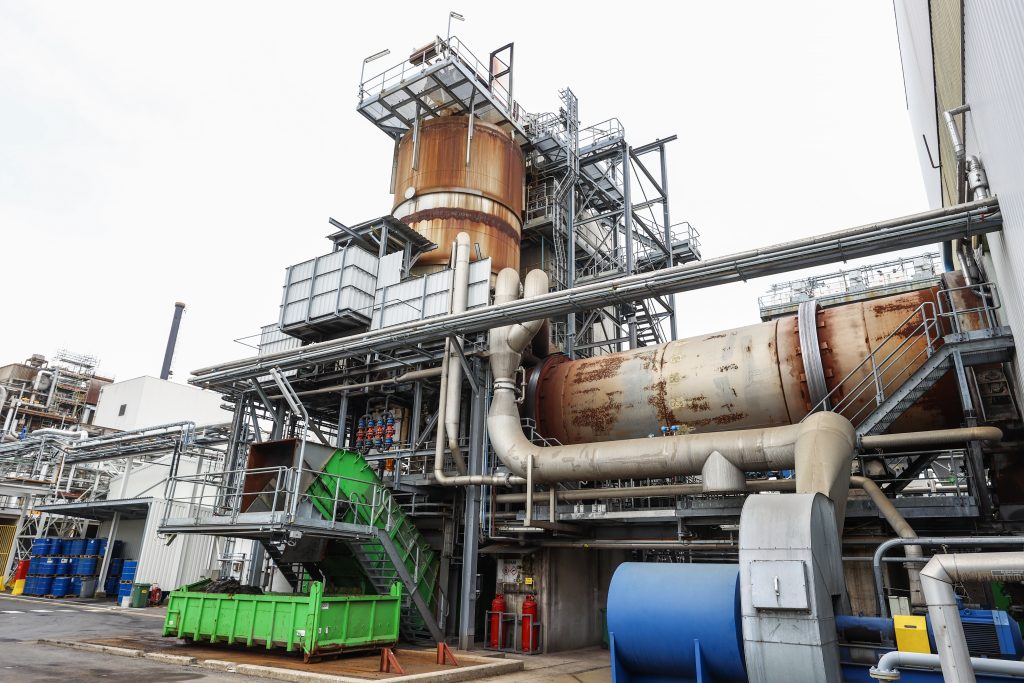Belgium supports a European ban on the use of PFAS, a chemical proven to be dangerous to people's health, and of which one compound – PFOS – was at the heart of a recent pollution scandal.
PFAS, which is short for per- and polyfluoroalkyl substances, is a larger group of chemical compounds that includes PFOS, a chemical hazardous to human and animal health that was discovered in the soil near the 3M factory in Antwerp, leading to people in the danger zone being advised not to eat certain foods, as well as a political fallout.
"Increased concentrations of PFAS have been found in the environment, in various locations in Belgium, which could have possible effects on human health," said Céline Tellier, Walloon Minister for the Environment and Nature on Wednesday during a meeting of European Environment Ministers in Luxembourg.
She explained that the first results of a biomonitoring initiative that she is conducting in Wallonia showed "worrying concentration levels of chemical substances in the bodies of our fellow citizens, including substances that were banned 40 years ago."
"I would like to stress the importance of biomonitoring actions at all levels," said Tellier, who stated that Belgium will support the adoption of a restriction covering PFAS as a group of substances.
Related News
- Leaked emails show Flemish government asked to stop communication about PFOS pollution from 3M factory
- PFOS pollution scandal: Report shows people have been ingesting pollutant mainly through food
"This restriction will aim to prohibit all non-essential uses of PFAS and only allow specific uses for which there is evidence that they are essential for society and for as long as there are no alternatives," she added.
She added that, in cases where the use of PFAS cannot be substituted by safer alternatives, the European Commission should ensure the traceability of PFAS and develop methods to ensure compliance checks.
Checks, policies and expertise
Tellier added that Belgium, as part of the proposed strategy including various measures, is calling for the sharing of knowledge and best practices between Member States on environmental permits and the management of historical pollution, and for the development of European expertise in this area.
One of the main issues when it comes to banning PFASs, also known as Forever Chemicals because they take a long time to degrade in nature, is that they are a very broad family, comprising several thousand synthetic chemicals.
For this reason, Tellier highlighted the need for strong policies to be adopted "as soon as possible to avoid severe environmental damage and adverse health impacts."
On an international level, Belgium is calling on the Commission to include PFAS in the Stockholm Convention, a treaty that became effective in 2004 and that aims to eliminate or restrict the production and use of persistent organic pollutants.
"Finally, in a broader sense, we invite national, European and international authorities, companies, investors and researchers to provide full support for the transition towards a safe and sustainable-by-design approach to chemicals," Tellier said.
"It is up to us to invest massively and collectively both in financial and political terms in a more sustainable production model," she concluded.
Tellier's spokesperson told The Brussels Times that the proposal had been well received, citing, in particular, the support of Luxembourg, Denmark, Sweden, Austria, France, the Netherlands and Finland.
She added that the Commissioner for Environment, Virginijus Sinkevicius, promised to integrate PFAS in the EU chemicals strategy and in various provisions on food and soil.

